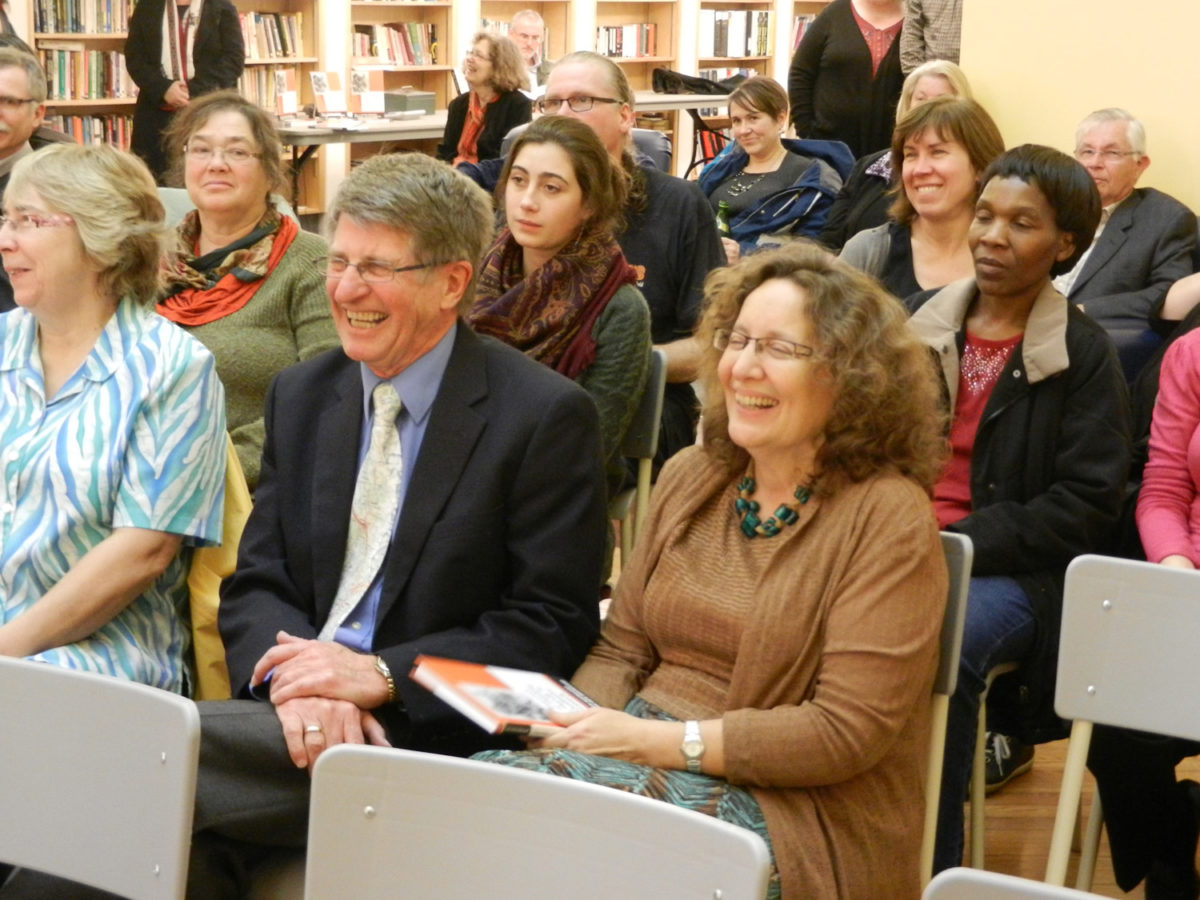

Deborah and Will van den Hoonaard celebrated the launch of Essentials of Thinking Ethically in Qualitative Research with about 40 people on Friday.
This is the second book the couple wrote together. They said writing their first one as a team was more challenging because they had to figure out the process.
“Will likes to write 24 hours a day, seven days a week. I like to relax,” Deborah said.
“I used to think that it’s just procrastination that I took so long to get writing on things. But I realized that there’s a process that I go through that I just have to live with. It takes me a long time to get going. Once I start, it’s very, very quickly. I never had a problem with meeting deadlines.”
In order to have a book that reads well and is composed in one voice, the couple developed first an outline. Then Will wrote the first draft, which Deborah edited and proofread, before they talked about the content again.
“We both get excited if we don’t agree on something immediately. We’re both excited about the process of talking it out and finding a solution,” said Deborah.
The couple was invited by editor Janice Morse from the College of Nursing at the University of Utah to contribute to the new textbook series Qualitative Essentials. In their book, the van den Hoonaards explore the challenges researchers come across when applying their “moral compass” to qualitative research.
The moral compass “involves integrity, honesty, being open and frank, … [and] respecting the person you’re interviewing,” said Will.
Deborah said thinking ethically requires a trusting and respectful relationship between researcher and participant.
“Principles in general are making sure participants participate voluntarily, keeping their participation confidential, preserving their anonymity, representing them fairly and not harming them,” she said.
“Preserving a participant’s anonymity is easier in clinical studies as you can work off like a chart,” Will said.
While qualitative research is having a conversation with a participant about a certain topic., clinical or biomedical research often involves testing drugs or treatments.
“But if you’re a social researcher and you’re going to a rural village, everybody knows whom you interviewed. Neighbours send their kids out to find out what’s happening. So, that’s one small example on how qualitative research is different than biomedical research,” said Will who’s working as a research associate with the Atlantic Centre for Qualitative Research and Analysis at STU.
The van den Hoonards are one of approximately ten sociologist couples in North America who publish books together, they said. Other couples work even closer than them and write every book as a team.
Deborah has published three other books, while her husband wrote ten books, some of them as editor and two with Deborah.
“Each book is like a baby, like a child. Bringing a child to the world. The personality of each child is so different,” said Will.
Deborah and Will have three children, Lisa-Jo, Cheryl and Jordan, to whom Will dedicated his book about women mapmakers. For 16 years, he worked on Map Worlds: A History of Women in Cartography. He writes about the role female cartographers have in the mapmaking field and included interviews with 25 women. This book was also launched at the event.
“Will has always loved maps. A long love of maps,” said Deborah who helped him with proofreading and correcting typographical errors.
Before his career at UNB and his research job at STU, Will was the assistant cartographic editor of a European mapmaking company. He chose the topic not only because it’s a personal passion, but also to explore this field.
“Within all of us, there’s a part of us that we want to walk on the edge of things. To try something new or different that’s kind of scary. And expand our habits or ways of thinking,” he said.
